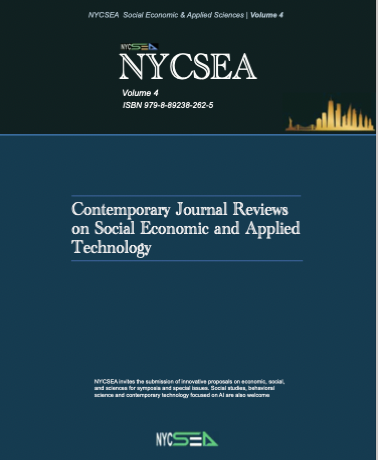We congratulate you on acceptance of your manuscript.

Abstract: Effective health insurance policies are of the utmost importance as they shape the lives of and provide safety to billions of people worldwide. Under the broader umbrella of general health insurance, the high-deductible health plan (HDHP) is a relatively recent idea. The HDHP essentially consists of a high deductible combined with a lower premium. This study strives to find the impact of the HDHP on overall human well-being and health while assessing its effects and identifying potential benefits and drawbacks.
The potential benefits of this plan were doubted at first; however, studies have revealed that its popularity has skyrocketed in comparison to its predecessors. HDHP users may experience a series of behavioral consequences of varying effects due to the human psyche. Grouping findings from a personal survey with historical data from other sources, analysis across various demographics demonstrate that HDHP users lead better lives. The representations in the report, implemented with the TI-SmartView TI-84 Plus emulator, illustrate that high-deductible health plans correlate with a generally positive impact on its users.
The survey, which considered wording and response biases, confirms that the above trends are valid irrespective of nominal categorical variables such as gender, ethnicity, and age. This study attests to the fact that the HDHP, when adopted with the understanding of the behavioral aspect, can help to improve the health of society as a whole. Finally, it also suggests techniques to make sure that those who select this plan follow certain behaviors that drive positive outcomes.
Keywords: Health insurance, Human well-being, High-deductible health plan (HDHP)
References:
Appold, Karen. “High-Deductible Health Plans: a Brief History.” Managed Healthcare Executive, 22 Sept. 2015, www.managedhealthcareexecutive.com/mhe-articles/high-deductible-health-plansbrief-history.
Bovbjerg, Randall R., and Jack Hadley. “Why Health Insurance Is Important.” Urban Institute, 2 Feb. 2017, www.urban.org/research/publication/why-health-insurance-important.
Folger, Jean. “Health Savings Accounts: Advantages and Disadvantages.” Investopedia, Investopedia, 29 Jan. 2020, www.investopedia.com/articles/personal-finance/090814/pros-and-cons-healthsavings-account-hsa.asp.
Fontinelle, Amy. “How High-Deductible Health Plans Work.” Investopedia, Investopedia, 29 Jan. 2020, www.investopedia.com/articles/personal-finance/012716/how-highdeductible-health-planswork.asp.
Gersema, Emily. “High-Deductible Health Plans Raise Risk of Financial Ruin for Vulnerable Americans, Study Finds.” USC News, University of Southern California, 5 Apr. 2018, news.usc.edu/140182/high-deductible-health-plans-raise-risk-of-financial-ruin-for-vulnerableamericans-study-finds/.
Kamal, Rabah. “How Health Spending Patterns Vary by Demographics in the U.S.” Peterson-Kaiser Health System Tracker, 18 Aug. 2016, www.healthsystemtracker.org/brief/how-health-spendingpatterns-vary-by-demographics-in-the-u-s/.
Cohen, Robin A, and Emily P Zammiti. “Products - Data Briefs - Number 317 - August 2018.” Centers for Disease Control and Prevention, Centers for Disease Control and Prevention, 9 Aug. 2018, www.cdc.gov/nchs/products/databriefs/db317.htm.
Reddy, Sheila R, et al. “Impact of a High-Deductible Health Plan on Outpatient Visits and Associated Diagnostic Tests.” Medical Care, U.S. National Library of Medicine, Jan. 2014,